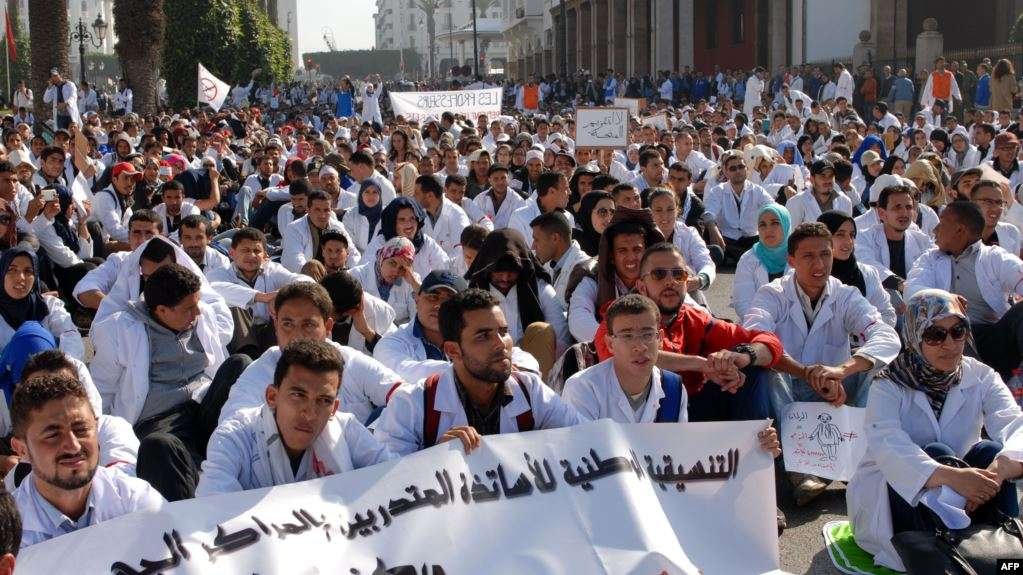Morocco, angry scenes erupted at the regional Hassan II Hospital after a number of pregnant women died following emergency cesarean operations. Locals say the hospital lacked proper equipment, sufficient medical staff, and basic hygiene conditions. These tragic deaths acted as a spark, prompting protests not only in Agadir but also rippling out to cities like Nador, Settat, Tiznit, Beni Mellal, Essaouira, Taounate, Meknes, and Tata. Citizens demanded access to dignified care, shorter wait times, and respect for their right to health.
Citizens Enumerate Healthcare Failures Long Waits
Many cities, protesters pointed to a set of persistent healthcare problems: patients waiting hours, even days, for critical appointments; lack of medicine or broken medical equipment; overcrowded wards; and doctors or nurses stretched thin. Some also flagged absenteeism among hospital staff, calling it a major factor in life-threatening delays.

The shortage of nurses and midwives is especially acute: Morocco has about 37,000 nurses and midwives, which many argue falls significantly short of what is needed to provide reliable care in rural or under-served regions.
Facing mounting pressure, Health and Social Protection Minister Amine Tahraoui moved to dismiss several key hospital and regional health service leaders. Among those removed were the regional health director of Souss-Massa, the provincial delegate of Agadir Ida-Outanane, and the local hospital director in Azemmour. These moves represent attempts to show accountability and respond to outrage.
Health Ministry Orders Discipline and Security Measures Amid Protest Wave
Beyond dismissals, Morocco’s Ministry of Health has issued circulars aiming to reinforce discipline among medical staff. Hospitals must monitor work hours closely, respect shift schedules, and ensure staff presence. The Ministry has also instructed hospital administrators to enforce professionalism, improve patient reception, and install or upgrade security and surveillance in facilities to reduce tension and safeguard the dignity of patients and staff alike.
Healthcare worker unions, rights groups, and citizens are pushing back against what they see as cleanup operations without real change. They argue that dismissals and reprimands alone won’t solve systemic dysfunctions, such as underfunded provincial hospitals, unequal distribution of facilities and staff, governance issues, and lagging infrastructure.
Health Crisis Highlights Urban-Rural Healthcare Divide and National Trust Challenges
These protests have highlighted Morocco’s geographic and social healthcare inequality. Urban centres often fare better with infrastructure, equipment, and staffing, while rural or mountainous regions continue to lag significantly. As citizens in more remote cities join protests, the contrast becomes sharper. Many people say they travel to larger cities for care or go without.
Morocco now stands at a critical juncture. To prevent these protests from growing into larger unrest, actions must go beyond dismissing officials. Sustained investment in hospital infrastructure, especially in rural areas, must come. Training, hiring, and retaining medical staff including nurses and midwives has to be a priority.

